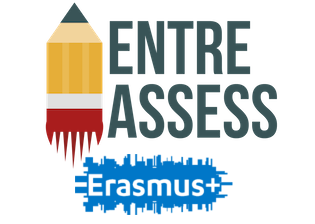 In short: The School-Enterprise Method (SEM), developed by Cometa Formazione, offers experiential learning as a means of connecting young people with the world of work and introducing a real job experience to the classroom which has a positive impact on students’ attitudes to both work and study.
In short: The School-Enterprise Method (SEM), developed by Cometa Formazione, offers experiential learning as a means of connecting young people with the world of work and introducing a real job experience to the classroom which has a positive impact on students’ attitudes to both work and study.
Age group: Students between 14 and 19; NEETs until 25.
Initial challenges: Cometa Formazione started in 2003 as a training centre focused on young people not in education, employment or training (NEETs). This educational challenge required the introduction of innovative learning approaches which led to the School-Enterprise Method (SEM). The SEM introduces a real job experience as a starting point for the whole learning process.
What they did about it: SEM is based on a “reality-based learning process”. Teaching activities take place in workshops open to real customers, where every student learns by following an expert in the process of making a real product for the public. This method gathers soft, basic and technical skills into an integrated curriculum, based on students’ project work. Thus the production process becomes the learning process: design thinking, project, production, evaluation, administration and promotion are the main areas. Workshop subject areas include: two cafeterias, one restaurant and one bakery (catering track); wood decoration, restoration and production of furniture labs (carpentry track); and, one fashion studio and a visual merchandising atelier (textile track).
Results: Several outcomes and impacts have been evidenced, including: 80% of participants gain a placement; 94% of dropouts usually conclude their training; and an average of 95% of students increase their soft skills. The SEM and the reality-based learning have already received international recognition, for example, the European Training Foundation (ETF) awarded the method as one of the 10 best European Program for Entrepreneurship (2016), and it has been included as a best practice in the Pact4Youth program (2017).
Relevance for entrepreneurial teaching: The objectives of the programme are to support the employability of young people. Young people are provided with training to develop their skills and apply them to produce goods and services for commercial sale. They are supported from composing the idea to transforming it into a commercial project or product. This condition allows the student to discover the passion and the spark that makes a person become an entrepreneur. It is the rediscovery of the value attributed to practical knowledge. On completion of the programme, young people have the chance to take up apprenticeships or start their own business.
Applied assessment methods and tools: The most relevant tools concern the assessment of the (soft and professional) skills developed by students during their training, both in school workshops and in companies. A specific didactic unit including several modules based on scenarios, focus groups and tests has been introduced to support students in planning, doing and evaluating their job experience. Cometa Research produces and shares scientific publications on these innovative tools and methods, which are available on request.
Contact information: Paolo Nardi, paolo.nardi@puntocometa.org
Website: https://www.cometaresearch.org; www.puntocometa.org


